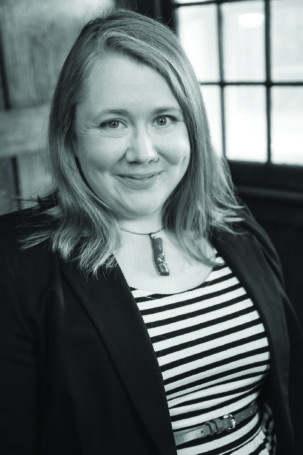Edmonton Shift Lab looks at five ways to fight racism

Racism is a complex social ill that is embedded in our culture, in our history and, too often, in our thoughts. How do we begin to move the needle on such a complex problem? Over the past 18 months, the Edmonton Shift Lab has been exploring this question. A partnership between Edmonton Community Foundation and Skills Society Action Lab, the Shift Lab has been using a model known as a “social innovation” to create prototypes that address racism and its links to poverty and housing.
Through this work, we have gleaned many insights about racism. These emerged from multiple places: conversations between lab participants, formal research from community experts (including the Centre for Race and Culture), and sometimes personal experience. There is no “magic bullet” to solve racism. Nevertheless, we have five hypotheses as to where to start.
1. Personal conversations change hearts and minds
Engaging with people on a personal level is the best way to create change. For example, scholar Reza Aslan notes that the best way to erase individual Islamophobia is to meet and speak with a Muslim. If personal conversations are effective, how might we scale them to have an impact against systemic racism?
2. Start small
The Shift Lab creates prototypes; we are clearly biased toward starting small. Breaking down a complex issue like racism gave participants the confidence to suggest solutions and an entry point into the larger problem. Starting small also prevents an overinvestment of resources before knowing if an intervention is effective.
3. Interventions need to happen on multiple fronts
Interventions cannot happen in one place — they need to include every sector of the community, all levels of governments, businesses, not-for-profits, etc. Likewise, interventions cannot follow the same template. Our hope is that social innovation can be one tool to develop solutions to complex problems and is taken up by a broad range of stakeholders.
4. Get out of comfort zones
Along with personal conversations, getting people out of their comfort zones is key to changing minds. For example, Jodi Calahoo Stonehouse (a Shift Lab Steward) arranged for Shift Lab participants to partake in a sweat. For all of us, the sweat was an opportunity to think, feel, and create knowledge in different ways.
5. Recruit unusual suspects; don’t just “preach to the choir.”
During the recruitment process for participants, there was a lot of conversation about who should be in the room. How do we balance the depth of experience and knowledge of folks who have been involved with anti-racism work, against those whose minds we actually need to change? Ultimately, we tipped the balance toward the former, but given additional time, we would have included a more rigorous screening and inclusion process to find and include these “unusual suspects.”
To learn more about the Shift Lab, check out their first-year report at here.